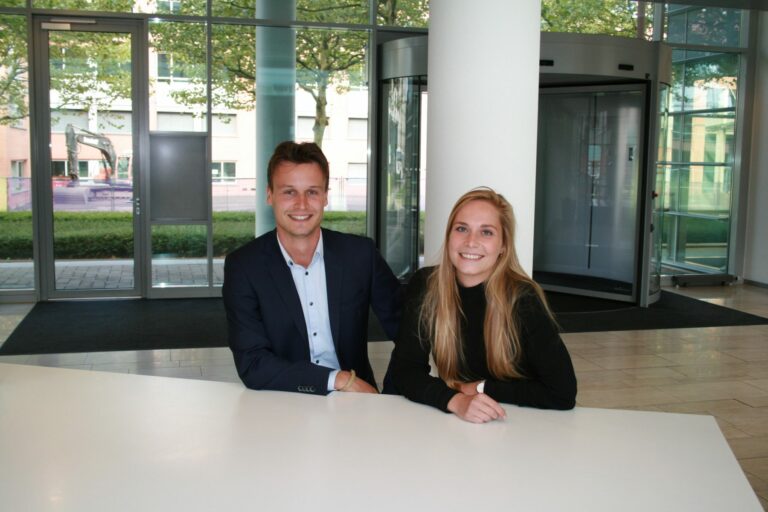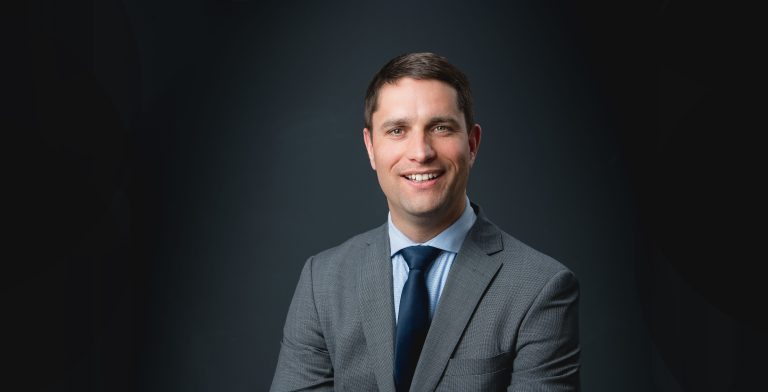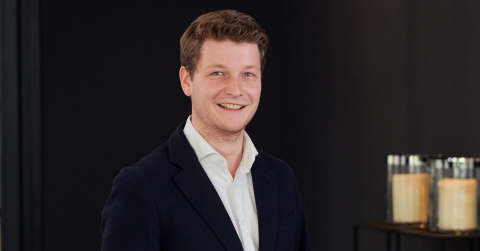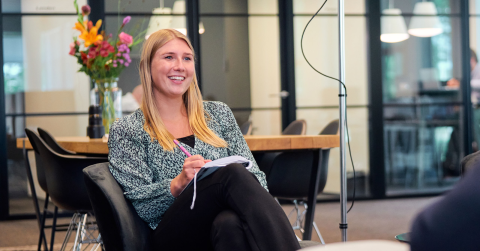
Technology might be a means of achieving customer-oriented innovation, but company culture is the driver

What do consumers want? Transparency, speed, competitive prices and good service. These are all things that can be provided with the aid of smart technology. And that’s the driving force behind Jan Willem Hoitsma, PPI director of Brand New Day. Learn more in the first instalment of a series of interviews in which we ask financial institutions for their take on the industry.
Everything’s possible online. And once you’ve ordered something you’re not prepared to wait a few days for delivery; you want it today. Check and edit your personal details? You want to be able to do so immediately. Thanks to current technology, practically anything is possible. More and more customers expect to receive optimum digital service, and if they don’t get it they’re prepared to switch to a provider that does offer personalised service. Retailers like Coolblue and Bol.com know full well that their business model depends on it, which is why, when it comes to digital, they are streets ahead of most banks and insurers.
FinTechs are also deftly responding to new developments, allowing them to leave traditional banks, insurers and pension funds behind. One of these FinTech companies is Brand New Day and according to its PPI director, Jan Willem Hoitsma, optimum customer service is what the current market is all about. He reckons that trends such as robotics, artificial intelligence and Agile working, as well as the forthcoming PSD2 legislation, can all play roles. But the main role, he insists, will be played by the corporate culture: technology might be the means, but culture is the driver.
CARRY ON WHERE OTHERS STOP
“At Brand New Day we have automated as much as possible and we manage our core systems ourselves,” explains Hoitsma. “Products must be transparent and open and they must be accompanied by service that’s not typically Dutch. This is why our corporate culture comprises entrepreneurs who are responsible for their own customer journeys and carry on where others stop, both in terms of customer service and development.”
It’s clear then that entrepreneurism is a key part of the culture, with short lines of communication and flexibility being indispensable. All this is to be found in the self-management of the core systems, for example. The flexible shell surrounding that core has been procured but it can be replaced as soon as another option becomes available that will make Brand New Day even better able to serve its customers. This flexibility is typical of FinTechs. It allows them to quickly implement the latest technologies, comply with new legislation and, ultimately, give consumers what they want, exactly when they want it.
ROOM FOR INSPIRATION AND INNOVATION
Take trends like big data, artificial intelligence, the internet of things and blockchain. To enable them to keep innovating and strengthen or maintain their market position, start-ups and traditional banks, insurers and pension funds are immersing themselves in these technologies. Traditional players can learn a great deal from the way FinTechs continuously develop and implement them, not seeing innovation as a burden but as an essential ingredient to help them provide the kind of services their customers demand. On the other hand, banks, insurers and pension funds have much more resources and financial clout than these “new kids on the block”. So does all this make FinTechs a threat or an opportunity? You decide.
Time will tell which FinTechs will become the new corporate giants, which traditional financial institutions will fall by the wayside, which ones will re-invent themselves, and which companies will join forces. What is abundantly clear, however, is that everyone will have to meet consumers’ needs for more transparency, speed and service. The question is: how quickly can you turn technological developments into opportunities? FinTechs should therefore not be summarily dismissed as opportunists and their importance shouldn’t be underestimated either. Instead, see them as a source of inspiration, or seek to collaborate with them. Consumers will certainly thank you for it.





